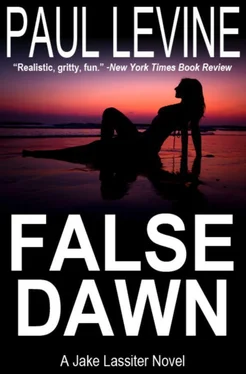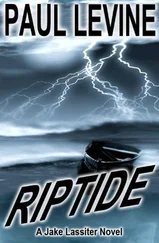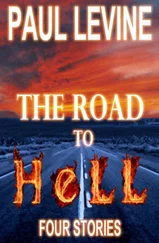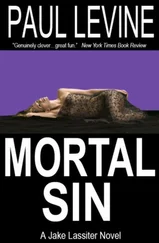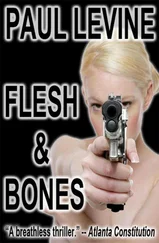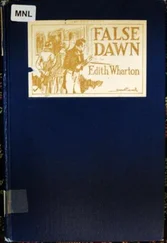Paul Levine - False Dawn
Здесь есть возможность читать онлайн «Paul Levine - False Dawn» весь текст электронной книги совершенно бесплатно (целиком полную версию без сокращений). В некоторых случаях можно слушать аудио, скачать через торрент в формате fb2 и присутствует краткое содержание. Жанр: Криминальный детектив, на английском языке. Описание произведения, (предисловие) а так же отзывы посетителей доступны на портале библиотеки ЛибКат.
- Название:False Dawn
- Автор:
- Жанр:
- Год:неизвестен
- ISBN:нет данных
- Рейтинг книги:3 / 5. Голосов: 1
-
Избранное:Добавить в избранное
- Отзывы:
-
Ваша оценка:
- 60
- 1
- 2
- 3
- 4
- 5
False Dawn: краткое содержание, описание и аннотация
Предлагаем к чтению аннотацию, описание, краткое содержание или предисловие (зависит от того, что написал сам автор книги «False Dawn»). Если вы не нашли необходимую информацию о книге — напишите в комментариях, мы постараемся отыскать её.
False Dawn — читать онлайн бесплатно полную книгу (весь текст) целиком
Ниже представлен текст книги, разбитый по страницам. Система сохранения места последней прочитанной страницы, позволяет с удобством читать онлайн бесплатно книгу «False Dawn», без необходимости каждый раз заново искать на чём Вы остановились. Поставьте закладку, и сможете в любой момент перейти на страницу, на которой закончили чтение.
Интервал:
Закладка:
Socolow cranked down his window-no power accessories for the cost-conscious agencies-and flipped his cigarette butt onto the asphalt. “You’re the one who’s fishing, Jake.”
“So tell me, already. You can’t just shanghai me.”
“You tell me, Jake. Where would you go if you had a few billion dollars’ worth of stolen goods to sell, and you knew that every civilized country in the world would imprison you or extradite you?”
“I don’t know. Some outlaw nation. Libya, maybe.”
“Qaddafi may not take kindly to an ex-CIA agent, even for a hundred-million-dollar tip. And Allied jets might find you with a smart bomb.”
“North Korea?”
The first car pulled off the outgoing-flights road and stopped in front of a chain-link fence. The driver showed identification to a uniformed guard, who swung open a gate and let our parade of Plymouths onto the tarmac.
“Too cold. Besides, if Moscow has any influence left in Pyongyang, you might lose your little cache of goodies as well as your head. Think about it, Jake. Somewhere neither the Ruskies nor the Yanks can reach.”
“Brooklyn,” I said.
The lead car stopped in front of a DC-9 that was being refueled. Vista Air was painted on the fuselage. It meant nothing to me.
“Senor Lassiter,” Soto said from behind me, “on the Malecon, there is a billboard which says, ‘ Esta tierra es cien por ciento Cubana.’”
Now what was he talking about?
Soto went on: “It is a lie, of course. It would be more correct to say that the land is one hundred percent Fidel. He no longer has the Russians to prop him up. Cuba is in the period of Zero Option, complete self-sufficiency. And the country cannot do it. Other than the diplotienda stores for foreigners, there is no clothing to buy, little food to eat. They ration bread, eighty grams a person a day. Even eggs, ironically called salvadores, saviors, are scarce. Castro, too, is like an egg.” He turned toward his daughter. “ Como se llama el cuento infantile? ”
“Humpty Dumpty,” she said.
“ Si, Humpty Dumpty is ready to fall. But several hundred million dollars, perhaps a billion, can get him through this time of crisis. Your State Department has always underestimated Fidel. They sneer at him for continuing to wear his fatigues. I personally heard one of the under secretaries say Fidel looked like an aging bellboy in that uniform. Have any of your bureaucrats lived in the mountains and fought guerrilla warfare?”
I figured some have wintered at Aspen and skied Buttermilk, but that probably didn’t count. “So you have a certain grudging admiration for Castro, even after what he’s done to you.”
“What I have is disgust for your foreign policy. You Americans believed that the Embargo Act and the Assets Control Regulations would bring Castro to his knees. Instead, you drove him to Moscow, and now, you force him to stand on his own feet. The signs in Havana, ‘ Socialismo o muerte,’ are not just slogans to Castro. They are his reason for living. But there is an even more important sign these days: ‘ Patria o muerte.’ Fatherland or death. It is the crucial time for the survival of the regime. Even now, they are restoring hotels and building new ones in partnership with European companies. The Pan Am games brought thousands of turistas, and Europeans are beginning to flock to Cuba for cheap holidays. Japanese companies are preparing joint ventures with the Cuban government in biotechnology and medical supplies. There are ongoing ventures with twenty-nine countries. Cuba has opened its doors to foreign investment. And most important of all, Cuba’s Union del Petroleo has begun to explore oil reserves off the north coast in a venture with a French consortium. It is expected to yield a major strike. Still, those new ventures take time, years for new hotels and factories to be built, even longer to drill for oil. Fidel needs hard currency now.”
I refrained from thanking Soto for the lesson in geopolitics. We were getting out of the car when I turned to him and asked, “Very interesting, but what’s that got to do with Foley and the stolen art?”
Even as I said it, I knew the answer. I’m like that sometimes. The information reaches my brain a split second after the foot lodges in the mouth.
Abe Socolow was looking at me as if he doubted I could change a buck into four quarters. “Hey, Jakie, where did Robert Vesco go after stealing a couple hundred million dollars? Where is it warm and you can pick coconuts from the trees and senoritas from the streets? Where can you drink the best rum and smoke the best cigars?”
“Okay, okay,” I said. “Cuba. We’re going to Cuba.”
T he passengers were mostly exilado s visiting ailing grandparents in Cuba. A few Cuban citizens lucky enough to get visas were returning home after visiting relatives here. The woman in the row ahead of me wore three pairs of socks, men’s shoes, a winter coat, and enough costume jewelry to stock a small shop. Soto explained there was a forty-four-pound limit on luggage that Cuban citizens could take home. Other than the families, there were the three of us: an ex-political prisoner turned CIA informer, a lady PI with jet black hair and dark liquid eyes, and me, an overgrown ex-jock turned mouthpiece who was always a step too slow.
It was a forty-minute flight. Just like going to Orlando, but the destination bore less a resemblance to the Magic Kingdom than to the Evil Empire, as Ronald Reagan, that old Cold Warrior, once called the now defunct Soviet Union. The customs inspector looked hard at the visas provided by our pals in the caravan, looked hard at us, then let us in.
We squeezed into an avocado-colored Lada taxicab that fishtailed through the wet streets of Havana. The radio played salsa, and in the back seat, Lourdes moved her hips to the music until we were touching. The air was hot and humid as we drove along the Malecon, the wide boulevard that runs along the shoreline. Youngsters carried truck-tire inner tubes on their shoulders toward the beach. I wondered if they were going for a swim, or trying to cross the Florida Straits to a new world. We passed the United States Interests Section where the windows overlook a huge billboard with a cartoon Uncle Sam growling toward a rifletoting Cuban who shouts, “ Senores imperialistas, no les tenemos absolutamente ningun miedo. ”
“It is true,” Soto said, looking at the sign and smiling, “the Cubans have absolutely no fear of the United States. The irony is that they fear their own leader. They are afraid to protest the intolerable living conditions, the human rights abuses. But they know how the West lives. Their televisions pick up the Miami channels. They listen to Radio Marti. And yet, it must get even worse for them to pick up stones and hurl them at the barricades. It must become a situation of total hopelessness for the Army to turn against Fidel.”
The sun was setting, casting a pink glow over the peeling, pockmarked buildings of Habana Viejo. Brakes squealing, the Lada stopped in front of the Inglaterra Hotel in Old Havana. After we got out, I said, “If it happened in Romania…”
“ Si, Senor Lassiter, we are at the precipice of history in this country. It can go either way, and that is why our mission is so important.”
The old hotel had a faintly baroque look with curved dramatic lines, and a Spanish flair for wrought-iron railings and paie stucco. We checked in and gathered in a restaurant with a dark wooden bar and a polished tile floor. Around us, a group of German tourists noisily drank their Cuban beer. Lourdes ordered three mojitos, a sweet drink of rum, soda, sugar, and fresh mint leaves. Above the din of the tourists was the beating of drums from an adjacent show bar where an Afro-Cuban dance show was underway.
Читать дальшеИнтервал:
Закладка:
Похожие книги на «False Dawn»
Представляем Вашему вниманию похожие книги на «False Dawn» списком для выбора. Мы отобрали схожую по названию и смыслу литературу в надежде предоставить читателям больше вариантов отыскать новые, интересные, ещё непрочитанные произведения.
Обсуждение, отзывы о книге «False Dawn» и просто собственные мнения читателей. Оставьте ваши комментарии, напишите, что Вы думаете о произведении, его смысле или главных героях. Укажите что конкретно понравилось, а что нет, и почему Вы так считаете.
